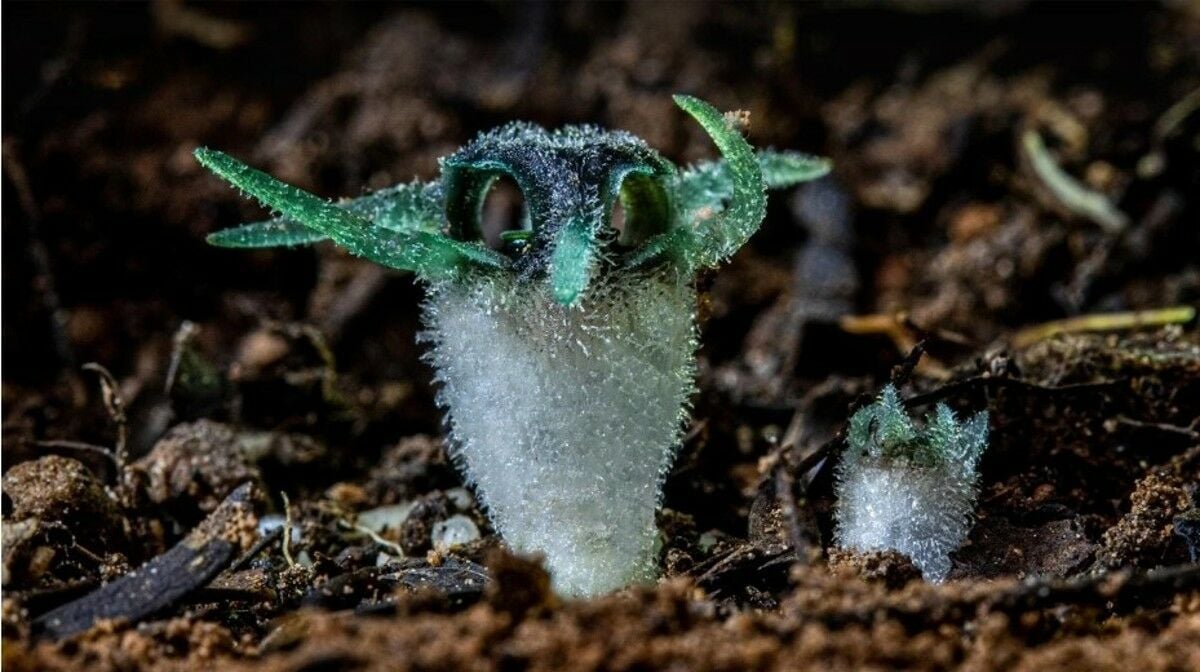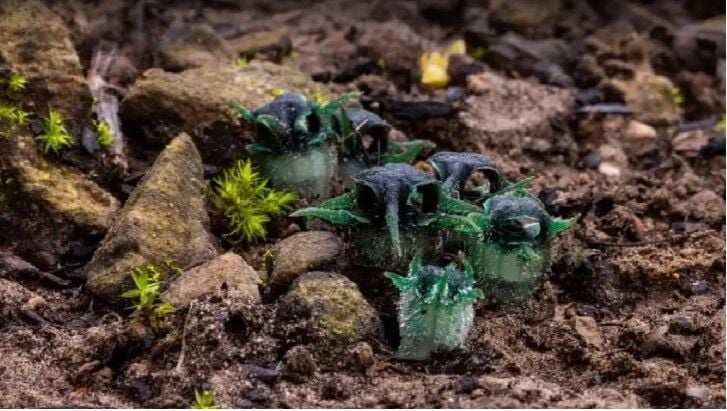Thailand’s ‘Glowing Owl’ flower: A rare botanical spectacle

Deep in Thailand’s remote wilderness, one of nature’s rarest and strangest blooms is set to emerge from the forest floor, leaving tourists and botanists scrambling for a glimpse. The mysterious Thismia thaithongiana, also known as Phisawong Owl’s Eye, is about to make its annual appearance in the Umphang Wildlife Sanctuary in Tak province on Thailand’s eastern border with Myanmar.
Discovered in 2018 on the slopes of Doi Hua Mot, this bizarre, owl-shaped plant has drawn fascination for its eerie glow and parasitic nature. The plant feeds on fungi, blooming once a year at the end of the rainy season, making October the prime time for sightings. As Thismia thaithongiana is only found near dwarf date palms, which host the fungi it relies on, spotting one requires sharp eyes and good timing.
For most of the year, this peculiar plant remains hidden underground as a rhizome. When the rains subside, it sends up a minuscule stem—just 2 millimetres long—that culminates in a flower unlike any other.
These flowers can appear solo or in clusters, each bearing six green petals (tepals) arranged in two striking rings. The outer ring has three horn-like tepals, while the inner ring’s tepals fuse into a cap-like structure, adding to its strange beauty.
Botanists are still studying Thismia thaithongiana, as its fruit and seeds have never been observed due to the plant’s brief blooming period. Named after Obchant Thaithong, a renowned associate professor at Chulalongkorn University, this elusive flower remains a botanical mystery, blooming just long enough to intrigue, but not long enough to solve its secrets, reported The Nation.

In related news, researchers from Chiang Mai University have uncovered a brand-new species of Ylang Ylang, or cananga tree, at the Satun UNESCO Global Geopark. Dubbed “Chalermprakiat” in honour of His Majesty the King’s 72nd birthday, this discovery is set to shake the botanical world.
Latest Thailand News
Follow The Thaiger on Google News:


























